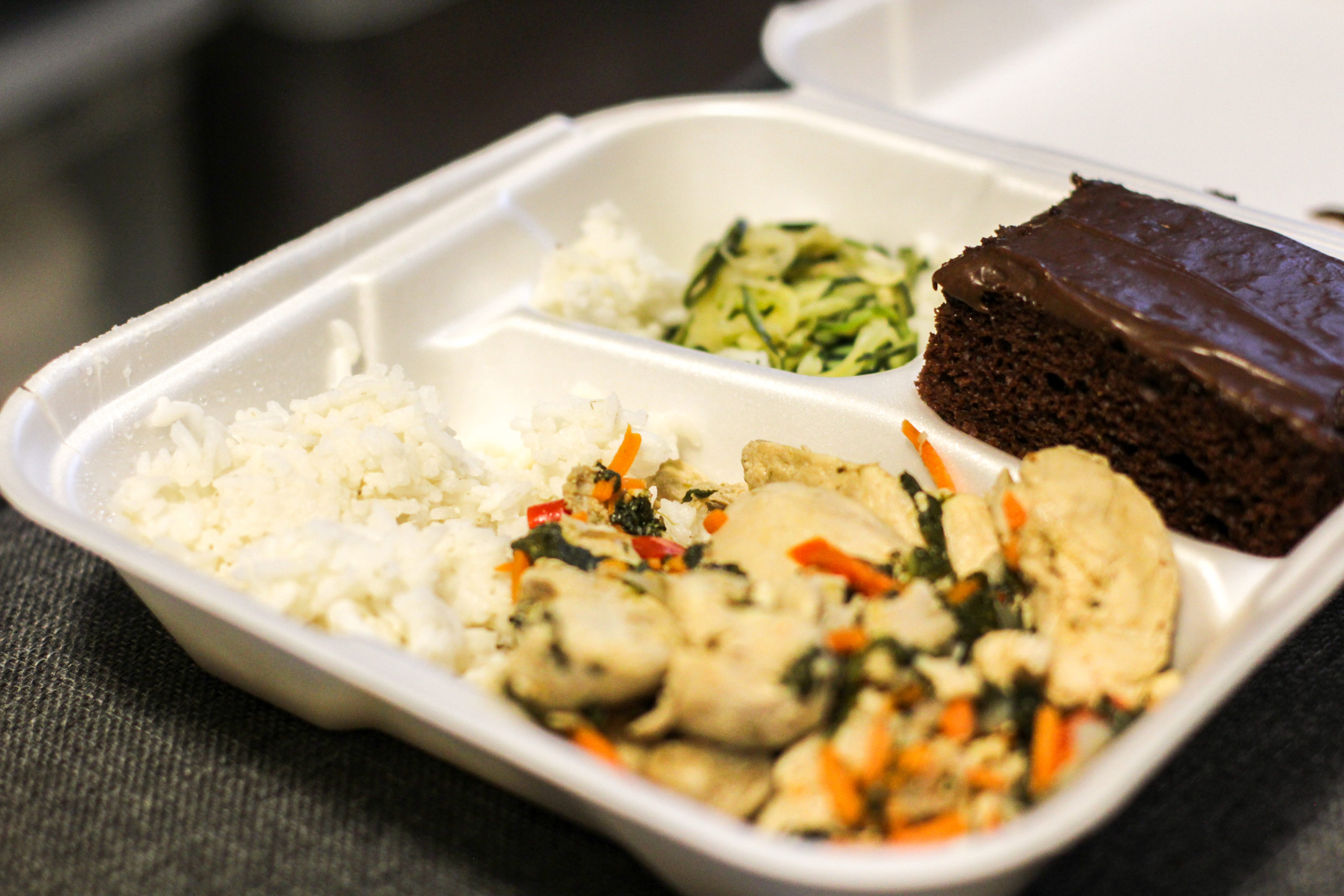Campus Kitchen Works to Address Food Insecurity with Burg Bowls
By Nicole DeJacimo, Investigations Editor
Since 2007, Gettysburg College’s Campus Kitchen has worked to provide nutritious meals to families in the greater Gettysburg community by packaging leftovers from Servo and fresh produce from the Painted Turtle Farm. But only this year have they turned to another population that studies show may be struggling with food insecurity: college students.
This semester, Campus Kitchen initiated a new program called Burg Bowls to help fight food insecurity on campus. Burg Bowls aims to address food insecurity among students by providing free, fully anonymous meals available for pickup at the Office of Multicultural Engagement and the International Student Center each Thursday. However, volunteers say that it is not a fix-all and food insecurity has yet to be fully addressed at Gettysburg.
“Just with our experience, there’s food insecurity on campus.”
-Erin Schroeder ‘20
“There are studies on food insecurity on campuses, just not Gettysburg specific,” said Erin Schroeder ‘20, a member of Campus Kitchen and an organizer of Burg Bowls, to discuss food insecurity and the purpose of Burg Bowls on campus.
Food security is often only considered at its extremes, but it is not always as visible as needing food stamps or having to go to a soup kitchen every day.
According to guidelines from the United States Department of Agriculture (USDA), there are four levels of food security: high, marginal, low and very low food security. If someone experiences the highest level of food security, it means they have no limitations on their access to food with proper nutrition. Those facing the lowest levels of food security have “multiple indications of disrupted eating patterns and reduced food intake.”
What often goes unnoticed is a form of food insecurity characterized by “reports of reduced quality, variety, or desirability of diet. Little or no indication of reduced food intake.”
Student planning to replace proper meals with cheap ramen noodles or fast food may save money, but the lack of nutrients puts their physical and mental health at risk, food insecurity studies by FDA Center for Food Safety and Applied Nutrition public health educator Dr. Maya E. Maroto show. These types of behaviors could be more widely accepted or not recognized as food insecurity because for many, they are viewed as typical of the college demographic. College students are known to choose the cheaper package of ramen, which can cost less than a quarter a serving at Walmart, over a healthier but more costly premade salad that can cost around $7.00 from the Bullet Hole.
According to Maroto, “Food insecure students were more likely than food-secure students to report a lower GPA (2.0–2.49) versus a higher GPA (3.5–4.0).”
While it may not look like food insecure students are eating less, their intake of essential nutrients could decrease. For this reason, it is difficult to determine how many students actually experience food insecurity.
“There is a stigma about food insecurity, and it is not addressed enough on our campus.”
-Schroeder
When scholarships, grants, and student loans are not enough, a quick way to reduce the bill is to reduce or eliminate the meal plan. While first years enter on the U.S.A Meal Plan, which includes unlimited meals from Servo, Upper-class students living on campus can reduce their meal plan from the Traditional 12 Meal Plan to the Apartment 7 Meal Plan in order to save $2,480 a year.
Some studies suggest that up to half of college students in America face some sort of food insecurity. While no systematic study of Gettysburg College students has confirmed prevalence to that degree, that 20 students have already signed up to receive Burg Bowls weekly suggests that food insecurity is present at the college.
“Just with our experience, there’s food insecurity on campus,” Schroeder said.
Students can sign up to receive meals through the online form.
The Burg Bowls program, while an important first step, is only a part of the solution, Schroeder added, arguing that more awareness of the issue is crucial.
“There is a stigma about food insecurity,” she said, “and it is not addressed enough on our campus.”
This article originally appeared on pages 10-11 of the February 27, 2020 edition of The Gettysburgian’s magazine.

